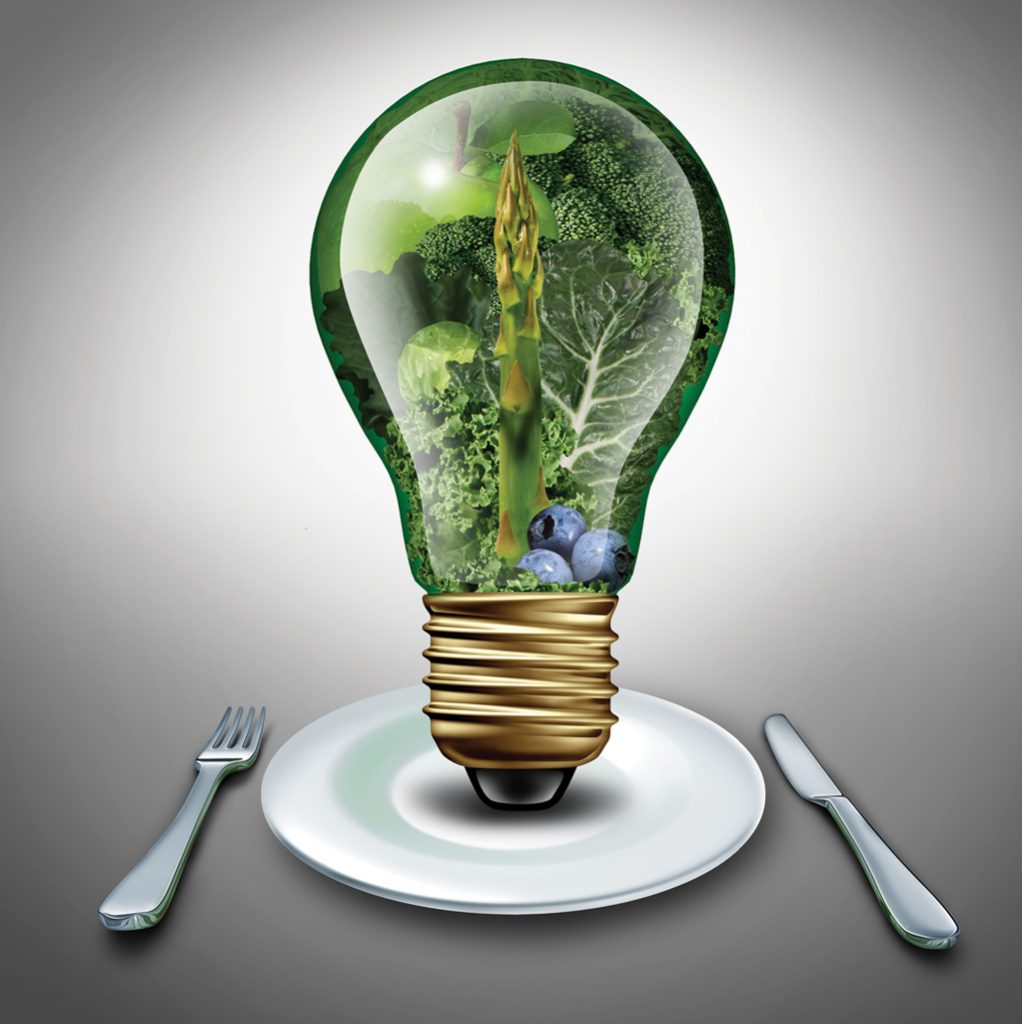Keep you mind razor sharp by adding these brain foods to your meals. They could help keep diseases such as Parkinson’s and Alzheimer’s at bay.

It is one of the world’s most used drugs and you’re probably already administering it to your body on a daily basis.
Yes, caffeine is considered a drug, one that stimulates our central nervous system to raise alertness. But your daily morning cup of joe isn’t the only thing you can rely on to help you take on the day’s tasks, especially as the effects of caffeine last for only around six hours.
EATING FOR THE BRAIN
There are plenty of other foods in the kingdom of edibles that can fuel yourbrain, as the nutrients inside them can impact our brain and moods via their effect on neurotransmitters. These are chemical messengers that relay signals between parts of the brain and affect things like mood, concentration levels and attentiveness
For example, amino acids found in high-protein food like poultry and eggs are key to producing dopamine, a neurotransmitter involved in brain activities such as thinking, learning and motivation. Serotonin is another neurotransmitter that works on cells to regulate mood, memory and learning. While carbohydrate-rich foods increase serotonin levels, they also have a relaxing effect, so it is important to make smart carb choices like whole grains, beans and vegetables.
Certain nutrients go a long way in preventing brain decline and the development of diseases such as Parkinson’s and Alzheimer’s. Just remember to add these nutrients and foods to your meals to keep your mind in tip-top shape:
OMEGA-3 FATTY ACIDS
A superstar nutrient for the brain, omega-3 fatty acids are known as ‘essential’ fatty acids as they are not made in our bodies and have to come from the foods we eat. Omega-3 fats are linked to the maintenance of brain functions, performance and memory.
Omega-3-rich foods are also brain foods for another reason: these fatty acids have been linked to decreasing risks of dementia and mental decline with age — all the more reason to eat fish twice a week. Thankfully, omega-3 fatty acids are easily found around us, such as in:
- Fatty fish (salmon, mackerel, trout, sardine)
- Plant sources (walnut, pumpkin seed, soya bean, flaxseed)
ANTIOXIDANTS
You have probably been told — frequently, since you were a child — to polish off the vegetables on your plate. Plant-based foods are the best sources of antioxidants, such as anthocyanin and vitamin E. These are substances that protect your cells against the damage caused by free radicals found in things like alcohol, fried food, tobacco smoke, pollution and pesticides.
Antioxidants can also repair damaged molecules such as DNA, strengthen immune systems and counter brain ageing. As such, it has been suggested that antioxidants can improve memory performance and have a preventive effect on progressive brain disorders, such as Alzheimer’s.
One antioxidant that ranks highly for brain protection is anthocyanin, a plant pigment that gives certain fruits and vegetables shades of purple or deep red. “These are powerful antioxidants that help prevent the degradation of fat into dangerous compounds in your blood that can affect memory function,” explains Jaclyn Reutens, dietitian at Aptima Nutrition & Sports Consultants at Camden Medical Centre.
Give yourself a mental boost by snacking on these anthocyanin-containing fruits:
- Strawberry, blueberry, raspberry, cherry, blackcurrant, cranberry
Another major antioxidant that should be added to your list is vitamin E. “Vitamin E is an important antioxidant that protects cells, including brain cells, from oxidative damage,” says Reutens. “In some studies, high plasma vitamin E levels were linked to increased cognitive performance.” To that effect, snap up these foods at the supermarket:
- Vegetables (chard, red pepper, spinach)
- Nuts and seeds (sunflower seed, almond)
- Fruits (pumpkin, mango, avocado, papaya)
Having a varied diet with nutritious brain-powering foods in the mix ensures you deliver regular and long-term boosts to your cognitive performance beyond just one workday. Focus your grocery shopping on these brain performance-enhancing items and you can raise a cup of coffee to many more productive days ahead!
Foods for an Ageing Brain
The brain shrinks and loses brain cells with age, which can affect learning and memory abilities. But even as you grow older, the right foods may still have an effect on your brain.
A new study looked at the links between a Mediterranean-type diet and brain volume in participants aged between 73 and 76 years old. Published in Neurology in January 2017, the study by researchers in Scotland examined the brain volume of more than 400 participants over three years. Results showed that participants who stuck to meal plans commonly found in Mediterranean countries retained more brain volume than those who did not.
While this study only suggests positive associations between the Mediterranean diet and brain health in older adults, you can start early on such a diet, which is characterised by an emphasis on fruits, vegetables, whole grains, nuts, olive oil, herbs and spices, and limited intake of red meat.







